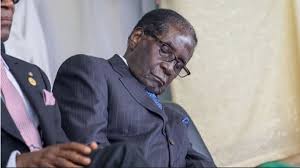The death of one of Africa’s founding fathers and long serving Zimbabwean ruler ‘President’ Robert Mugabe at the good age of 95, has gotten the citizens from different nationalities across the globe talking.
The people have been united in communication using social media, expressing mixed feelings, some showing sympathy, others condemning his murderous rule, but all in all got nationalities together in dialogue.
For the first or time in decades, world citizens came together in solidarity with their African and Zimbabwean counterparts.
Chidi Odinkalu from Nigeria wrote; “For Mugabe, power was an obsession, but in the end, it was also his undoing.”
Most of the world citizens who spoke about Mugabe expressed reactions too, just like their Zimbabwean counterparts.
The unique thing about this story is that while it common that different nations stand in solidarity with others, over the years this has been confined to leaders only.
Political analyst Elder Mabhunu says it is good that social media has given world citizens opportunities to unite, and express their concerns.
He says over the years, solidarity between nations has been centred on leaders only, who care little about their citizens.
“As for Africa, the leaders have been known for expressing solidarity among themselves and their respective political parties, but caring less about citizens.
“The good example is that of SADC, at its recent summit, the leaders showed solidarity with Zimbabwe per se (President Emmerson Mnangagwa), but cared less about Zimbabweans in general.
“In their solidarity they called for the removal of sanctions against the country. And to show that they were not concerned about the general public, they did not reprimand Mnangagwa who was busy butchering his citizens,” he says.
Mabhunu adds that these leaders can make noise when one of their own is attacked, but remain silent when citizens are attacked.
“At times when citizens are brutally tortured by their counterparts, they make fake, face cover statements as if they care. But deep down they don’t reprimand each other for wrong doing.
“Mnangagwa just like his now late teacher, brother, mentor, or father (Robert Mugabe) managed to butcher, torture, persecute, and use any other inhumane treatment on citizens but get away with it, just because their friends (SADC and African Union) leaders could not lambast them for such bad acts,” he adds.
Meanwhile, another political analyst Alex Magaisa agrees saying our leaders have strong unions purportedly organised in the name of the people, to stand in solidarity with each other.
“While we create cyber-boundaries between ourselves – Kenya Twitter, Nigeria Twitter, SA Twitter, Zimbabwe Twitter, etc, our leaders have a very solid trade union where they protect and look after each other whenever one is threatened.
“Although they are organised in the name of the people, these organisations are oriented towards serving governments rather than the ordinary people.”
He adds that because of that, people see indifference towards the plight of ordinary Zimbabweans as they are violated by their government.
“While political leaders are organised through organisations like the UN, AU, SADC, etc, the people remain disjointed, the commonalities of their challenges & grievances against leaders notwithstanding. The irony is organised platforms for leaders are in the name of the people,” he adds.
He says world over citizens have similar or almost identical plights, but because the citizens are disjointed they can not share experiences. However, the leaders share their own experiences through those organised unions.
“My story on Mugabe has brought me into contact with many fellow Africans & others with an interest in the continent. Over the years I’ve learnt a lot from fellow Africans, realising the common challenges across our countries & the need for solidarity,” he wrote on his twitter handle.
Magaisa believes world citizens should always unite, share experiences using social media.
“Travel helps broaden perspectives. But few have the means or time.
“Social media has given us platforms to travel through interaction.
“It starts with following voices outside familiar territory – following someone in Chad, Senegal, Togo, Lesotho, etc You will be surprised,” says Magaisa.













